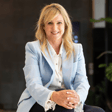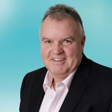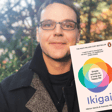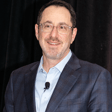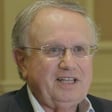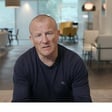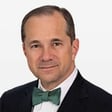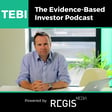Become a Creator today!Start creating today - Share your story with the world!
Start for free
00:00:00
00:00:01

Ep 8: Bill McNabb loves EBI
The guest on this week’s TEBI Podcast is none other than Bill McNabb, CEO and President of Vanguard, the world’s biggest and fastest growing asset management company.
This is what we asked him:
- Brexit and Trump: What can investors learn from the two political stories that shook the world in 2016?
- What does he make of evidence-based investing? And can we call Vanguard evidence-based?
- Why does Vanguard insist on selling actively managed funds as well as index funds?
- How has the rise of passive investing changed the rôle of financial advice?
- What does he think of robo-advisers such as Betterment and Wealthfront?
- How can traditional, face-to-face advisers stave off competition from the robos?
Find out the answers to all these questions by listening here:
Transcript
Introduction with Robin Powell
00:00:05
Speaker
Hello and welcome to the latest Tebbe podcast brought to you by The Evidence-Based Investor in conjunction with Regis Media. I'm Robin Powell and you'll find my blog at evidenceinvestor.com. Now, we have a special treat for you this week because our guest is none other than F. William McNabb.
00:00:28
Speaker
It was coincidentally at the very start of the global financial crisis in September 2008 that Bill McNabb became Chief Executive Officer and President at The Vanguard Group. I first met him in 2011 when I interviewed him for the online documentary Passive Investing the Evidence.
Market Risks and Political Events
00:00:49
Speaker
Since then Vanguard has gone from strength to strength. For five consecutive years it's been the world's fastest growing asset manager.
00:00:59
Speaker
Vanguard, which is based in Pennsylvania, attracted more than $315 billion of net new money last year, an increase of 23.2% on 2015. I recently caught up with Bill and started by asking him about the two big political events of 2016, Brexit and the election of Donald Trump.
00:01:22
Speaker
Interestingly, it turns out that Bill had a strong inkling all along that the British people would vote to leave the European Union. We had a lot of internal debate about Brexit and our economists had put it at 55% not happening and 45% would happen. So it was a pretty close call. I kind of was on the other side of it. I would have reversed it to 55-45.
00:01:47
Speaker
It doesn't really matter because at the end of the day, the real question for us was, what kind of risks were there in the marketplace? And we looked at it as understanding the consequences of Brexit from a risk reduction standpoint.
Long-term Passive Investing Strategies
00:02:02
Speaker
We didn't think there was any magic trade or anything like that that was going to produce lots of return for investors. To us, it was really sort of an asymmetrical set of issues.
00:02:13
Speaker
I think there's too many people spend time analyzing these phenomena, trying to figure out if there's short-term gain, and usually there's too many other variables at work.
00:02:24
Speaker
Five months after Britain's EU referendum, of course, the United States had a Brexit moment of its own when Donald Trump beat Hillary Clinton in the presidential election. For Bill McNabb, those two events, Brexit and Trump, underscore the value of blocking out the noise, of being completely agnostic about short-term market movements, and instead, investing passively for the long term.
00:02:52
Speaker
The one thing we've seen over and over again is forecasters don't get it right. So they not only don't get the base case right, but they don't get all the sort of ensuing consequences, if you will. And it's really interesting to see all the people who were wrong about the Trump presidency in Brexit are now putting forth all these things that we should take as gospel in terms of what's going to happen next.
00:03:17
Speaker
That makes no sense to me.
Evidence-based Investing & Vanguard's Role
00:03:19
Speaker
So I think having a long-term perspective and using low-cost investing, passive being probably the purest form of that, is a great way to just accumulate wealth over a period of time.
00:03:32
Speaker
Now, I entirely agree with Bill on this one, but playing devil's advocate for a moment, I put it to him that there is still huge uncertainty surrounding Europe and the EU and what the future holds for the US and the wider world under President Trump.
00:03:49
Speaker
Yes, stock markets are looking very much healthier today than most pundits told us they would, but it is surely understandable that so many investors are currently feeling very cautious. I think it would be naive to say that there aren't, I'll call them tail event risks. You know, you have these, you know, some policies that have been described that could create, you know, disturbances in the marketplace.
00:04:16
Speaker
But again, what are the probabilities of those actually coming to pass? I don't know. I think they're pretty low. The most important thing is how do you know when they're going to happen and very importantly when they're over and it's time to quote unquote get back in the market. I just don't think anybody has that ability to be that prescient. So my view is, you know, know your own risk tolerance and then set your portfolio accordingly and then frankly forget about all the noise in the short run.
00:04:43
Speaker
In a few moments, I'm going to be asking Bill McNab a question I've been wanting to ask him for a long time. What does he make of the idea of evidence-based investing? But first, here's a message from our sponsor Regis Media, connecting advisors with clients.
00:05:01
Speaker
For investors, there's never been greater access to information, and the financial media is as distracting as ever. Regis Media helps advisors produce great content, whether that's video, podcasts, graphics, animation or written articles. It's about educating your clients and being transparent about how you put
Active vs Passive Funds at Vanguard
00:05:19
Speaker
their money to work. Let's help investors tune out the noise and focus on what's really important. Regis Media, connecting advisors with clients.
00:05:29
Speaker
Welcome back. Our guest this week is Bill McNabb, CEO and President of Vanguard, the world's biggest asset management company. Now, I was one of the early adopters of the phrase, evidence-based investing.
00:05:45
Speaker
I use that term to describe a disciplined approach to investing that combines data with honesty about the unknowable future. Others use forecasts or emotions to guide their decisions. Evidence-based investors use facts, logic and reason.
00:06:04
Speaker
As a phrase, evidence-based investing is probably more readily associated with dimensional fund advisors than with Vanguard. But I asked Bill McNabb, is it a label that he feels comfortable attaching to what Vanguard does?
00:06:20
Speaker
I love that phrase because I think our whole business is built on evidence. We've made a statement to the marketplace that we think low cost is a really important element in terms of creating wealth for clients and the data are overwhelming here. That's why indexing has begun to take so much more market share.
00:06:41
Speaker
And, you know, so to us, the more data-driven we become as investors, we think, frankly, the better it is for that end investor. And, you know, that's what our business is really built upon.
00:06:53
Speaker
Although I was pleased to hear Bill McNabb endorse the concept of evidence-based investing so enthusiastically, it did prompt a follow-up question. If Vanguard is genuinely evidence-based, why does it continue to sell actively managed mutual funds alongside low-cost index funds? Look, I don't think the two are actually incompatible. What we believe, first and foremost, is low cost is what matters. So if you look at our active funds, they're very low cost.
00:07:23
Speaker
And our best performing funds tend to have not only low fees, but also low implicit costs. And what I mean by that, the trading costs and so forth are very low. And we have actually been able to pick managers over 25 and 30 year periods who have added value. So I don't think the two are exclusionary, but we make, you know, we're very clear that it's really hard to get it right. And you have to have tremendous discipline to see it through.
00:07:50
Speaker
Let's just say I'm going to leave that issue there.
Advisors' Adaptation to Passive Investing
00:07:54
Speaker
It's true that generally speaking, low cost active funds outperform more expensive ones. And if investors insist on using them, they're much better off going to a low cost provider like Vanguard.
00:08:07
Speaker
But let's move on to another subject entirely, financial advice. Specifically, how has the rise of passive investing changed the role of the financial advisor? Well, I think it puts a lot of pressure on the advisor to be much more, one, data-driven and two, much more disciplined. And those two probably go hand in hand. I think what you're going to see is, rather than people
00:08:35
Speaker
trying to convince their clients that they have insight into what the Trump election is going to mean for the market or what Brexit's going to mean for the market, they're going to become much more, I'll call it behavioral coaches, where they actually try to get their investors to withstand all these short-term shocks and sort of stay through, you know, stay the course, if you will.
00:08:58
Speaker
They're going to need the data and the evidence, if you will, to make that case to investors because emotion can run really strong, as
Technology in Advisory Services
00:09:05
Speaker
you know. To me, it's using the data to overcome the emotional, short-term reaction that people want.
00:09:12
Speaker
One of the biggest developments in global asset management in recent years has been the rise of the robo-advisor, companies like Betterment and Wealthfront in the US, Scalable Capital in Europe, and Stockspot in Australia. Bill McNabb sees a big future for automated solutions such as these. I don't think any of the robo-advisors are going to put traditional advisors out of business, but I do think the traditional advisor who ignores
00:09:40
Speaker
in a sense, the message that the Robos are providing does so at his or her peril. And what I mean by that is the Robo advice at the high end, the people who've done it best, they've taken really, really smart software engineers and said, here's a problem. Help us write really interesting code to solve that problem.
00:10:02
Speaker
And they have. Some of the better firms here have created some really great platforms, and they've lowered the cost of doing so. And so I think it's going to be incumbent upon advisors to figure out how to leverage the same kinds of technology to make themselves more effective, more efficient. I also think the interesting thing about the Robo is they remove emotion
00:10:26
Speaker
from the equation. Now I will say the flip side of it is, and this is certainly what we've tried to do in our own advice offer, is we've tried to combine the person with the technology of the robo.
Educating Investors During Volatility
00:10:38
Speaker
And for us what that does is it gives us the tremendous efficiencies and it gives us the really sophisticated algorithms and so forth, but you have that coach who can help people work through these issues.
00:10:51
Speaker
Music to my ears is that Bill is also a strong believer in the value of relevant, high-quality content. Both traditional advisors and robos, he says, should be making use of it, not just to educate investors, but also to reassure them.
00:11:08
Speaker
especially at times when they might be tempted to change course. I think one of the interesting things for us at least, and this will sound paradoxical but I don't think it is, we say ignore the short-term noise and let all the headlines just sort of wash over you, but we do think helping people understand what those headlines mean actually helps them do that.
00:11:31
Speaker
So I think having really good content around what's happening. So Brexit, let's go back to Brexit for a second. Having great content around Brexit and how to frame it as an investor, we had tremendous response from our investors for the content. We created the advisors, we were sending them lots of white papers and so forth. And they found it very useful to be able to turn to their clients and say, see, this is what it means to you in the long run, i.e.
00:11:59
Speaker
stick with your plan. And that really helped.
Conclusion & Vanguard's Impact
00:12:02
Speaker
And we got a lot of positive feedback. So I'm really encouraged by that. And that brings to a close this latest Tebbe podcast brought to you by the evidence-based investor in conjunction with Regis Media, connecting advisors with clients. You can learn more about Regis Media by visiting regismedia.com. That's regismedia.com.
00:12:26
Speaker
It just remains to say a big thank you to Bill McNabb for that interview and indeed to Vanguard for all that it's done for investors. No company is perfect, but this one for me has done more than any other to change investing for the better. Long may it continue to do so. Until next time, goodbye.


